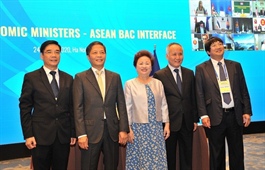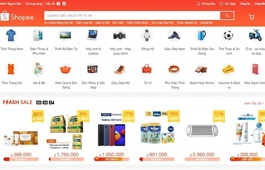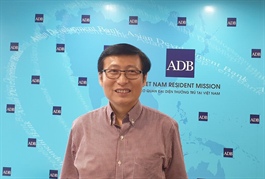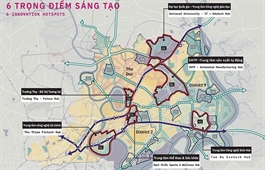Japanese press on with expansions
Japanese press on with expansions
The efforts of Japanese investors to expand overseas business and diversify supply chains in the era of COVID-19 will be a boon to Vietnam.
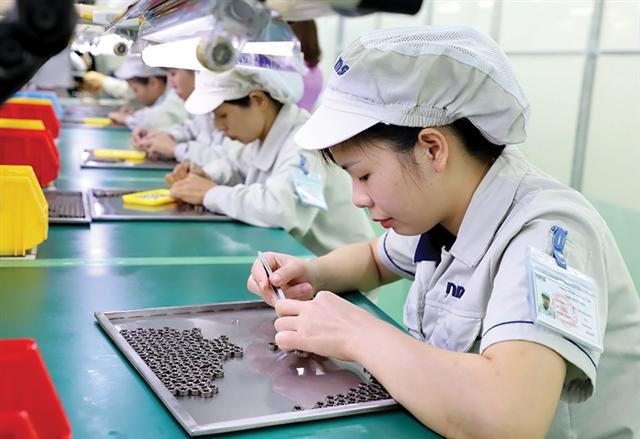
Local, and more affluent, consumers are yearning for quality products like from Japan
|
Japanese drugmaker ASKA Pharmaceutical has announced an agreement to acquire 24.9 per cent equity in Vietnamese counterpart Ha Tay Pharmaceutical JSC (Hataphar), making it the first overseas sales base for the Japanese company. ASKA plans to buy over 6.575 million shares at Hataphar. The transaction is expected to be completed in the next few months.
In 2019, Hataphar generated VND2.04 trillion ($87.45 million) in net sales and VND90 billion ($3.86 million) in net income, ranking as the second-biggest pharmaceutical producer in sales in Vietnam.
ASKA, established 100 years ago, is a speciality pharmaceutical company in the fields of internal medicine, obstetrics, gynaecology, and urology. The company set up its international business division in April with the aim to provide sustainable growth and development through overseas business.
ASKA believes that the collaboration through the transaction will “create synergies between Hataphar’s commercial structure and its own pharmaceutical development and manufacturing technology capabilities”.
According to a VIR source, other Japanese IT companies are looking for opportunities to snap up Vietnamese counterparts with a view to ramping up presence in the country. Among them, a Japanese firm, which already has a subsidiary in Thailand, is seeking a merger with Vietnamese partners in software outsourcing, digital transformation, project management software, human resources, and big data.
Meanwhile, another Japanese company providing call centre services in Vietnam is also looking for a potential IT firm with an expected value below $10 million.
Vietnam has become a darling for Japanese investors in ASEAN. A survey conducted by the Japan External Trade Organization late last year pointed out the reasons for the attractiveness of the Vietnamese market. Specifically, the proportion of Japanese companies that selected “market size/growth potential” as an attraction or advantage of doing business in Vietnam has continued to increase. In the last financial year it increased by 11.1 percentage points to 86.1 per cent compared to 2013. Other attractions and advantages that have increased include clustering of customer partners, political and social stability, availability of low-cost land and offices, and ease of local procurement.
Most recently, the Japanese government is paying about ¥12 billion ($114 million) to 30 companies to increase production in Southeast Asia, in the first round of a multi-billion dollar fund to diversify supply chains after COVID-19 and worsening relations between the United States and China. Half of them will be using that money in Vietnam, as reported by Bloomberg.
Fujikin Inc. makes parts used in semiconductor manufacturing and is the one benefiting from the incentives. The Osaka-based manufacturer will receive subsidies worth two-thirds of its costs to shift production out of China and into Vietnam. “We’d been thinking about increasing our capacity in Vietnam before the subsidy was announced, and it fit right in,” said company president Shinya Nojima.
Another Japanese investor, Showa International Co., is a Tokyo-based clothes-maker with 25 years of experience in Vietnam. The pandemic has seen it ramp up production of medical gowns and masks, with Kazuo Nishizawa, leader of the company, projecting it should be able to produce up to 150,000 gowns a month. “There’s still a large shortage of gowns and masks,” he said. “With the demand surging across the world, we have a mission to first be able to provide stable supplies to Japan.”
Similarly, Japanese retailer Muji has recently launched a pop-up store in Ho Chi Minh City. Muji already manufactures a large number of products in Vietnam. With this advantage, the company can reduce transportation costs and provide its products at a more reasonable price.
“Together with the growth of the economy in recent years, is the rise of a new group of Vietnamese consumers who yearn for quality products that are safe for the environment,” said Nagaiwa Tetsuya, general director of Muji Retail Vietnam. “Even though there are a lot of alternative options at cheaper prices, we believe that our products can deliver the quality Vietnamese consumers are looking for.”







